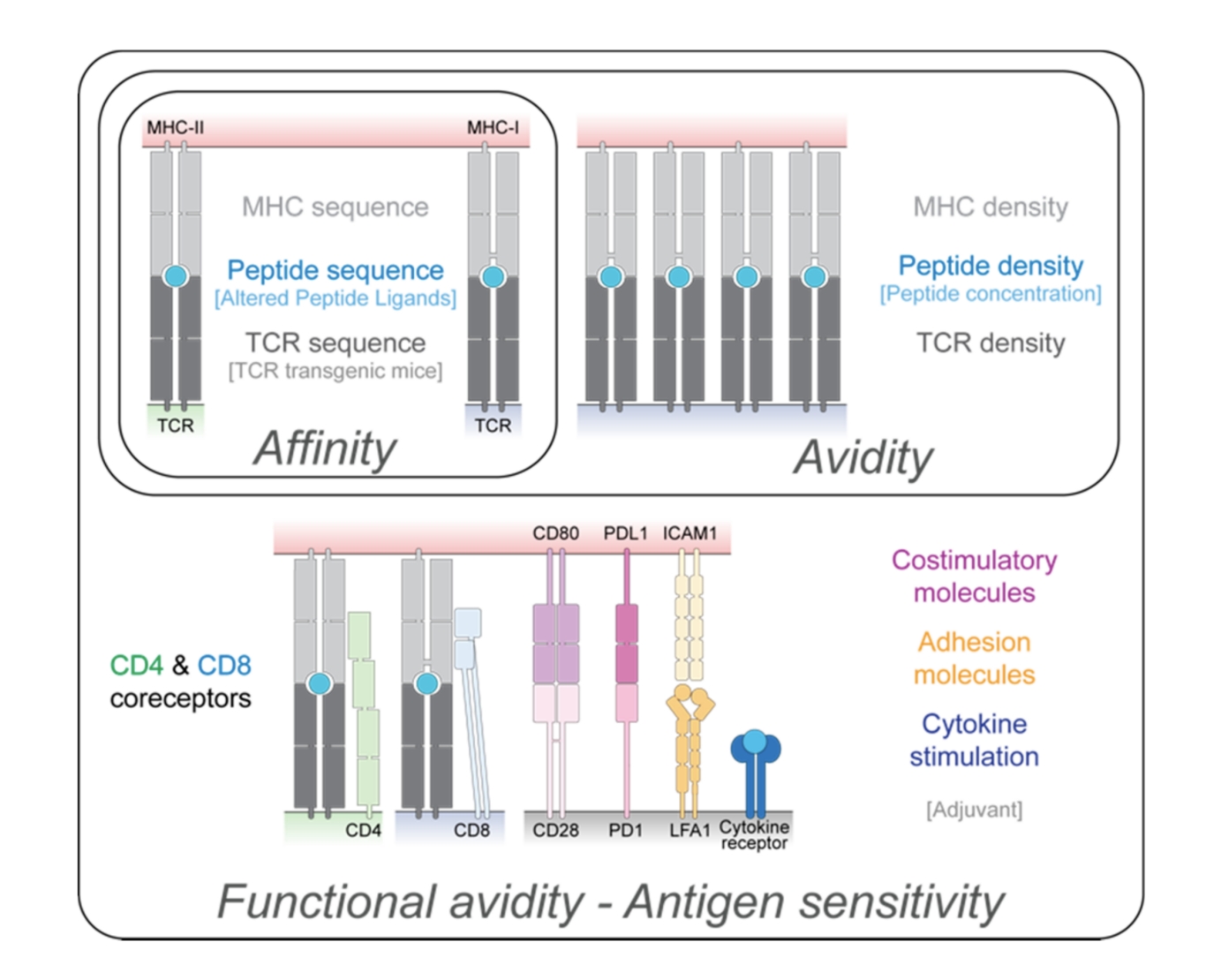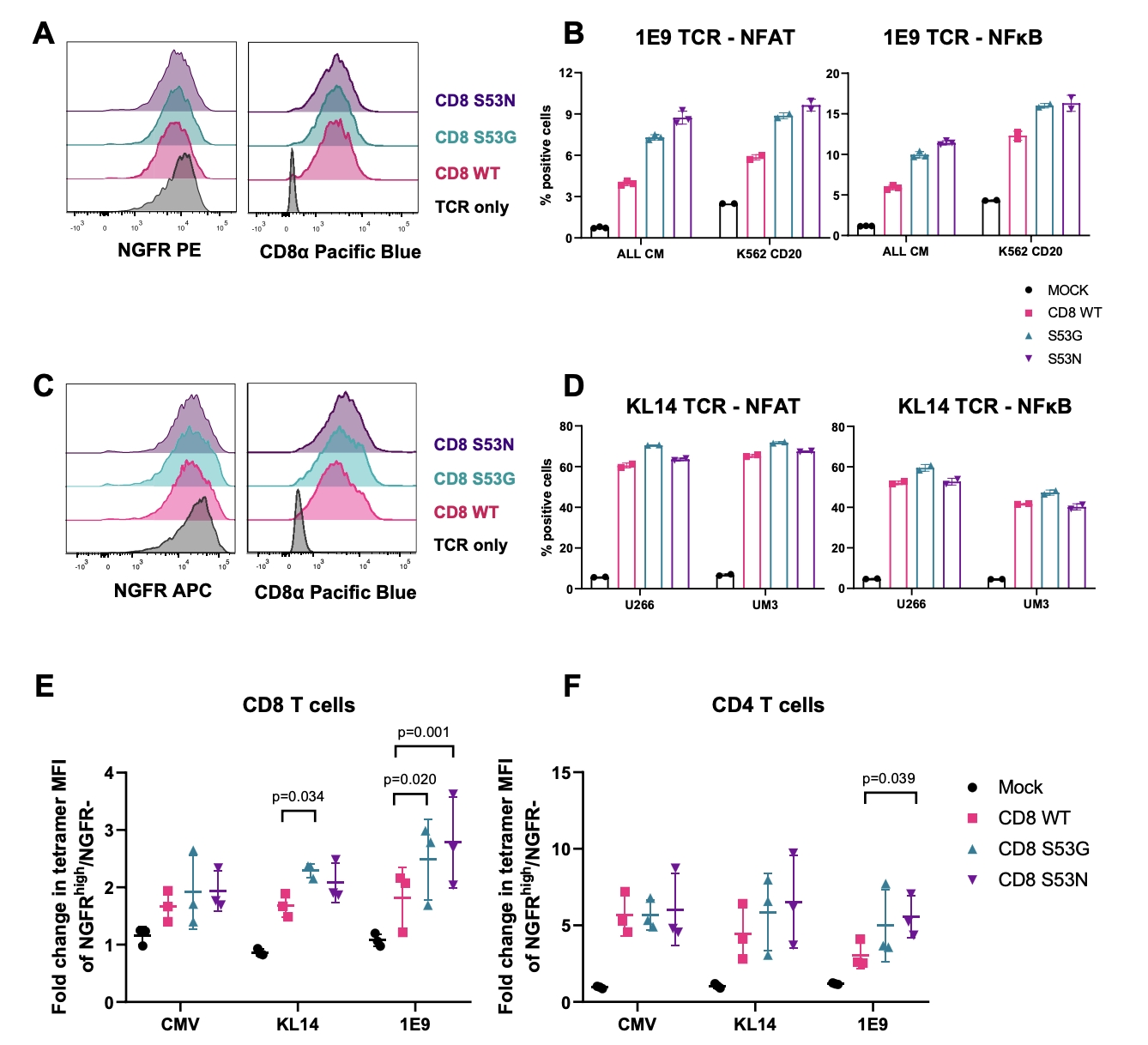All products and services are For Research Use Only and CANNOT be used in the treatment or diagnosis of disease.
The construction and production of high-affinity T-cell receptors (TCRs) are essential for the development of CellRapeutics™ Next-Generation TCR-TIL (tumor-infiltrating lymphocyte). As a result, Creative Biolabs provides industry-leading high-affinity TCR design, construction, and development services to recognize and bind to specific tumor-associated antigens with enhanced precision and strength. Our high-affinity TCR leads to improved T cell activation and proliferation in TCR-TILs, ultimately resulting in more effective targeting and elimination of cancer cells.
In our TCR-TIL platform, achieving the right affinity is crucial, as low-affinity TCRs may fail to adequately recognize and respond to tumor targets, compromising therapeutic efficacy. Furthermore, high-affinity TCRs can overcome the challenges posed by the tumor microenvironment, which often includes mechanisms that downregulate T cell activity. By enhancing T cell functionality, high-affinity TCRs can significantly improve treatment outcomes for patients with various cancers, particularly those that are resistant to conventional therapies.
Moreover, the development of high-affinity TCRs allows for the personalization of treatments based on individual tumor profiles, paving the way for more effective therapeutic strategies. As research progresses, the integration of high-affinity TCRs into TCR-TILs applications will continue to elevate the standard of care in oncology, offering hope for better survival rates and quality of life for cancer patients.
 Fig.1 Elements Affecting the Affinity, Avidity, and Functional Avidity of T Cells.1,3
Fig.1 Elements Affecting the Affinity, Avidity, and Functional Avidity of T Cells.1,3
At Creative Biolabs, our high-affinity TCR design is grounded in advanced computational biology and structural biology techniques, enabling precise identification and binding to specific antigens while significantly enhancing T-cell efficacy. This indicates that our products can more effectively target tumor cells, improving both the safety and effectiveness of treatments. After rigorous selection and validation, our TCRs demonstrate outstanding performance in both in vitro and in vivo environments, laying a solid foundation for subsequent clinical development.
1. TCR Selection
- Selection of Tumor Antigens: The process begins with identifying target tumor-associated antigens, such as carcinoembryonic antigen (CEA), hepatitis C virus antigens, or human papillomavirus (HPV) related antigens.
- T Cell Library Construction: Peripheral blood mononuclear cells (PBMCs) are isolated from healthy donors or cancer patients, and T cells are activated through culture with antigen stimulation to obtain T cells that are specific to the target antigens.
- TCR Rearrangement Sequencing: High-throughput sequencing technologies are employed to acquire the TCR gene sequences of the specific T cells.
2. TCR Modification
- Affinity Engineering: Techniques like phage display or other display systems (such as yeast display, and single-cell display) are used to optimize the affinity of the original TCR. Common methods include:
- Point Mutations: Introducing point mutations to enhance the TCR's affinity for the antigen.
- Affinity Maturation Techniques: Such as constructing and screening libraries to obtain TCRs with higher affinity.
- Humanization and Optimization: TCRs sourced from mice or other species undergo humanization to improve their biocompatibility and immune efficacy within the human body.
3. Validation and Evaluation
- In Vitro Functional Testing: Methods such as cytotoxicity assays and cytokine release assays (including IFN-γ, TNF-α) are used to assess the effectiveness and specificity of the modified TCR.
- In Vivo Experiments: Animal models, such as mouse tumor models, are utilized to evaluate the antitumor effects and safety of the modified TCR.
 Fig.2 High-affinity CD8 Variants Improve Signal Transduction and the Uptake of Tetramers by TCRs.2,3
Fig.2 High-affinity CD8 Variants Improve Signal Transduction and the Uptake of Tetramers by TCRs.2,3
High-affinity TCRs are capable of more efficiently recognizing and binding to specific antigens on the surface of tumor cells. Compared to traditional TCRs, our high-affinity TCRs show significant advantages in terms of recognition capabilities, T cell activation efficiency, and anti-tumor effects. Creative Biolabs employs advanced technology platforms to precisely design TCRs tailored for different types of tumors, greatly enhancing their effectiveness in TCR-TIL development.
As immunotherapy progresses, the demand for high-performance TCRs capable of effectively targeting specific antigens has grown significantly. Creative Biolabs is currently providing a range of services focused on the development of high-affinity TCRs to enhance our TCR-TIL cell therapy. If you're interested in discovering the possibilities of high-affinity TCR services or wish to find out how we can assist you in your groundbreaking TCR-TIL research, we invite you to contact us.
References
For any technical issues or product/service related questions, please leave your information below. Our team will contact you soon.
 NEWSLETTER
NEWSLETTER
The latest newsletter to introduce the latest breaking information, our site updates, field and other scientific news, important events, and insights from industry leaders
LEARN MORE NEWSLETTER NEW SOLUTION
NEW SOLUTION
CellRapeutics™ In Vivo Cell Engineering: One-stop in vivo T/B/NK cell and macrophage engineering services covering vectors construction to function verification.
LEARN MORE SOLUTION NOVEL TECHNOLOGY
NOVEL TECHNOLOGY
Silence™ CAR-T Cell: A novel platform to enhance CAR-T cell immunotherapy by combining RNAi technology to suppress genes that may impede CAR functionality.
LEARN MORE NOVEL TECHNOLOGY NEW SOLUTION
NEW SOLUTION
Canine CAR-T Therapy Development: From early target discovery, CAR design and construction, cell culture, and transfection, to in vitro and in vivo function validation.
LEARN MORE SOLUTION